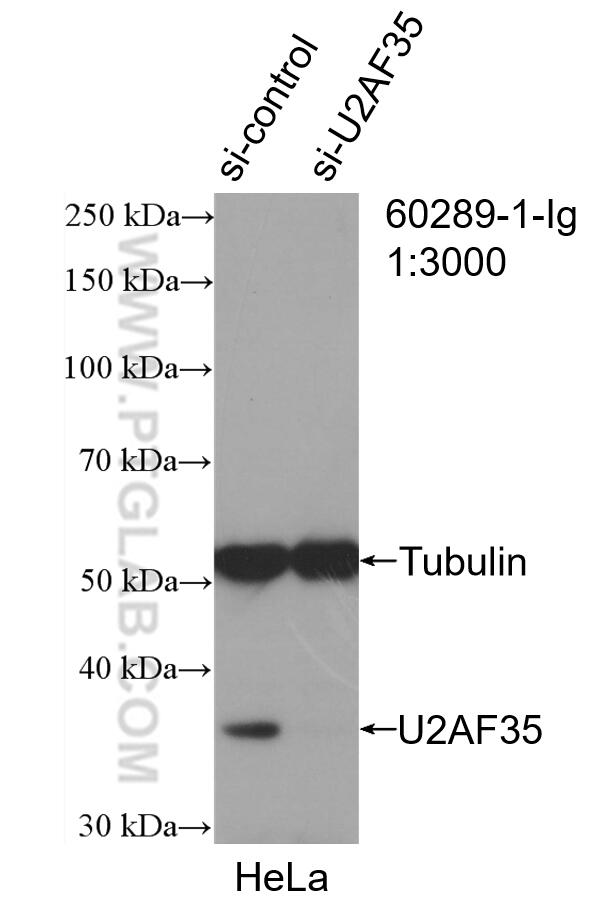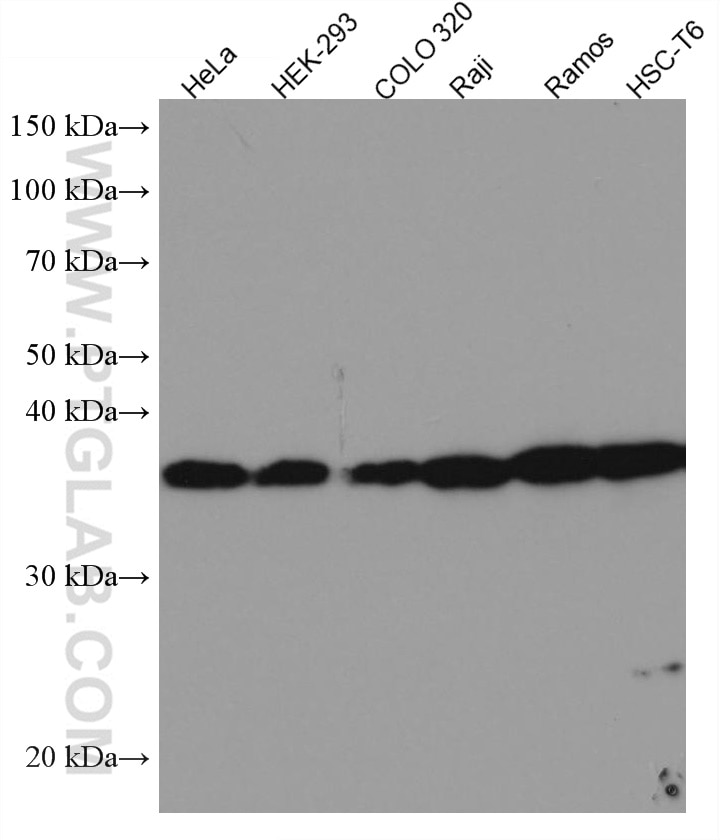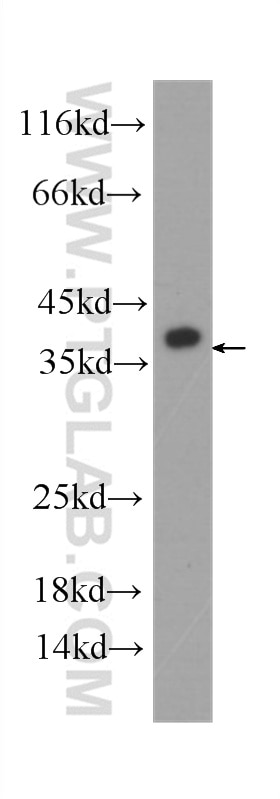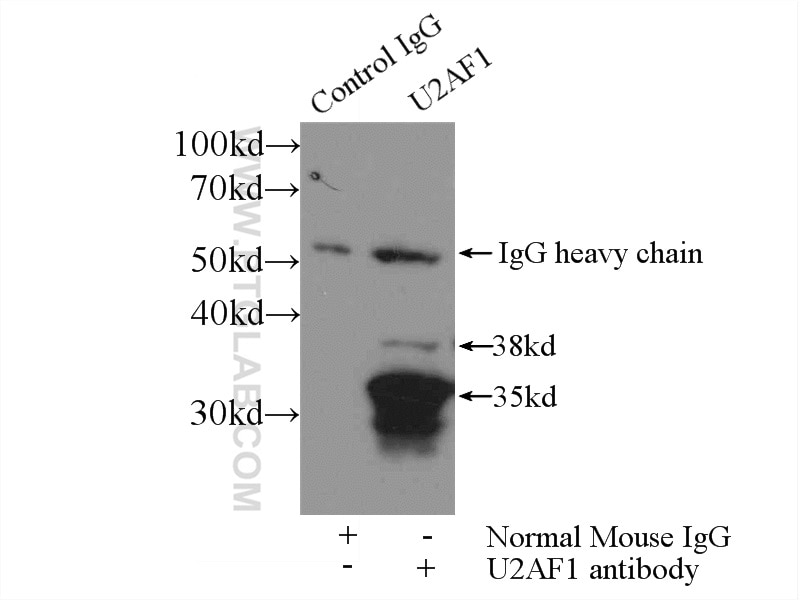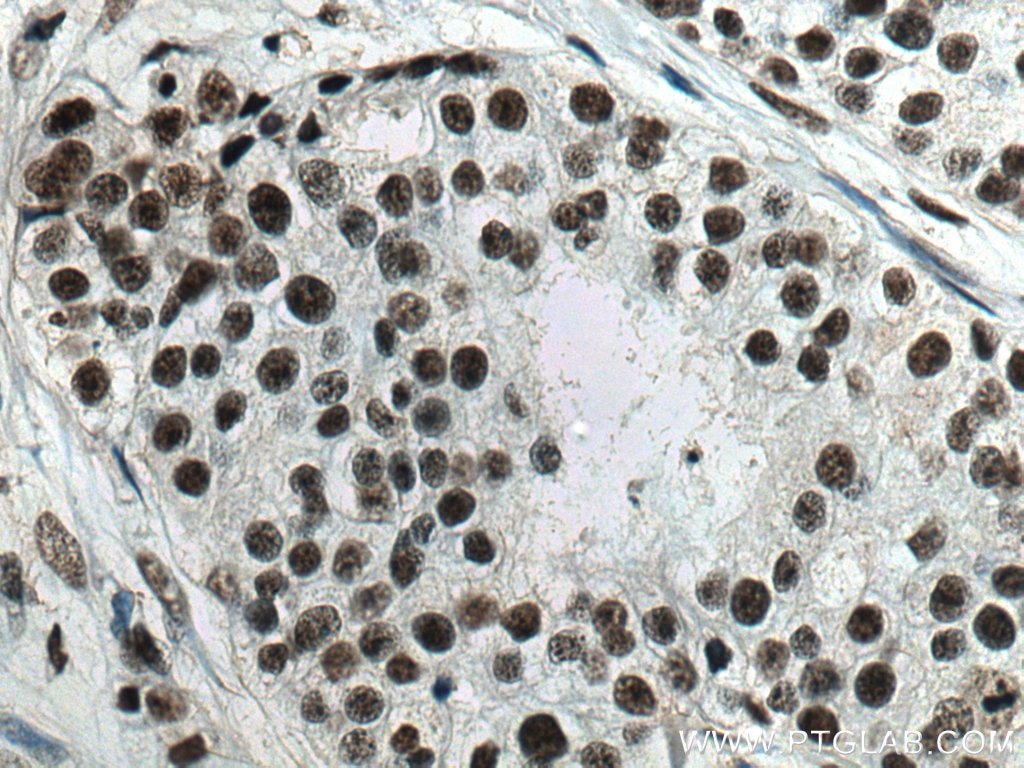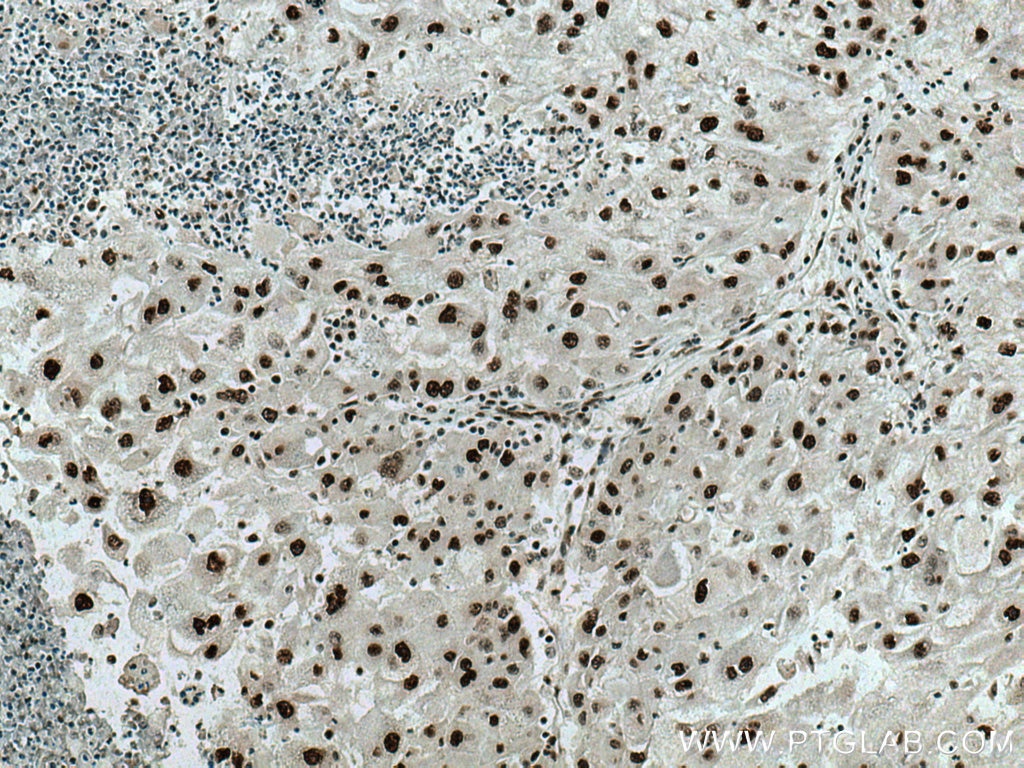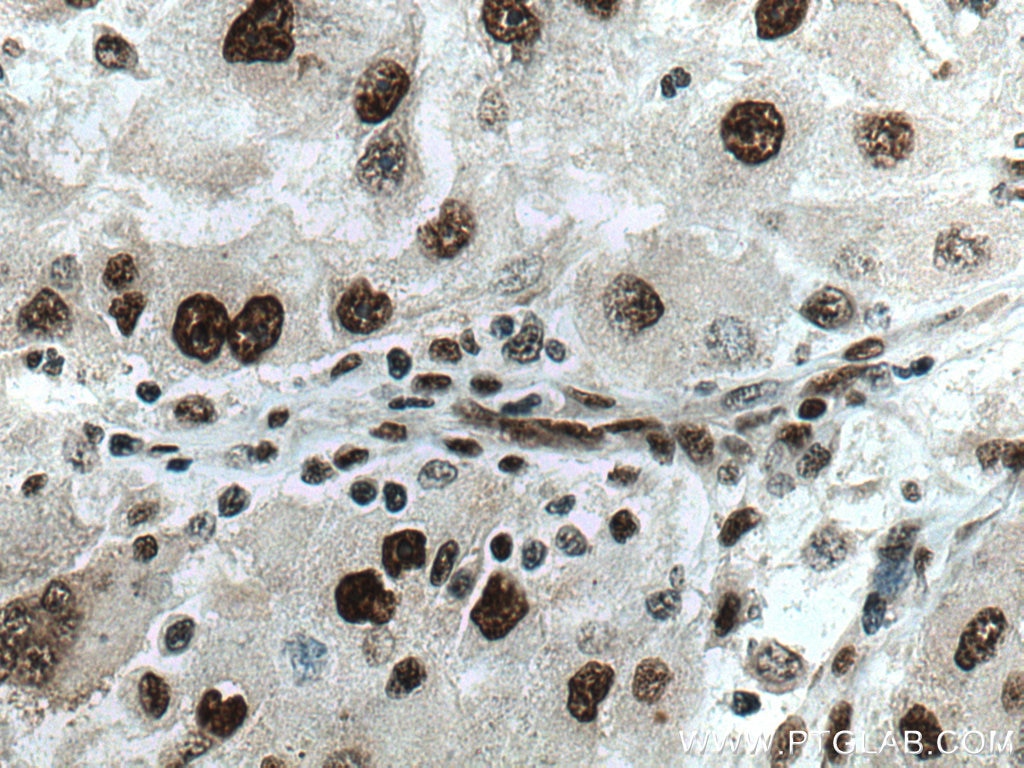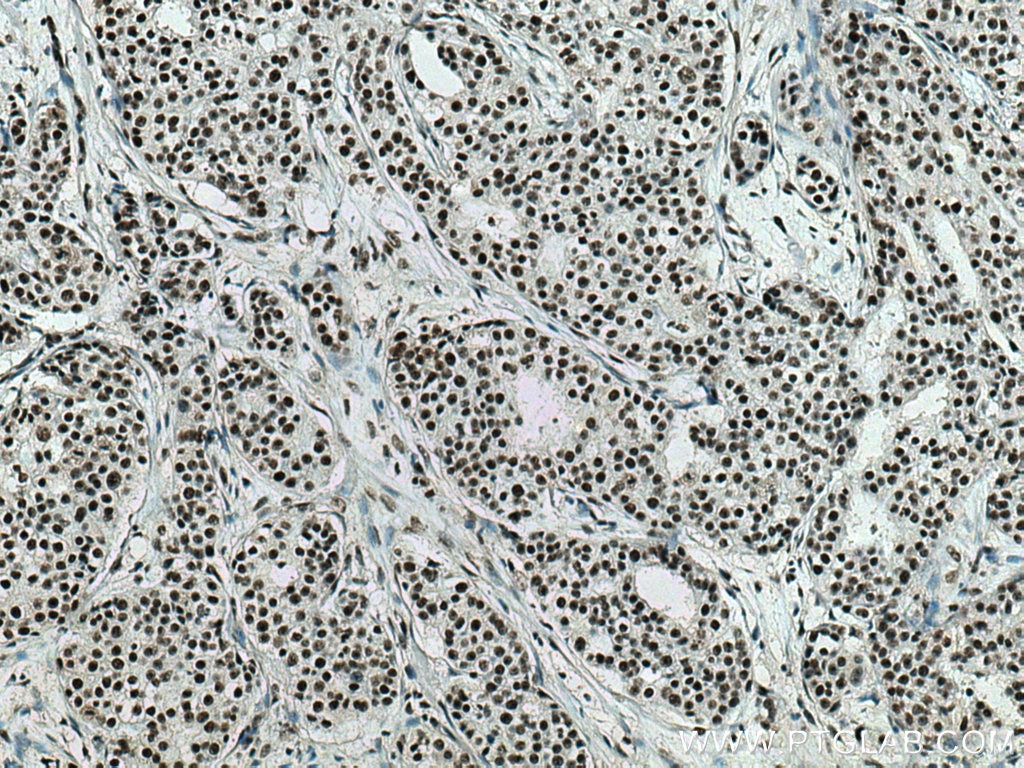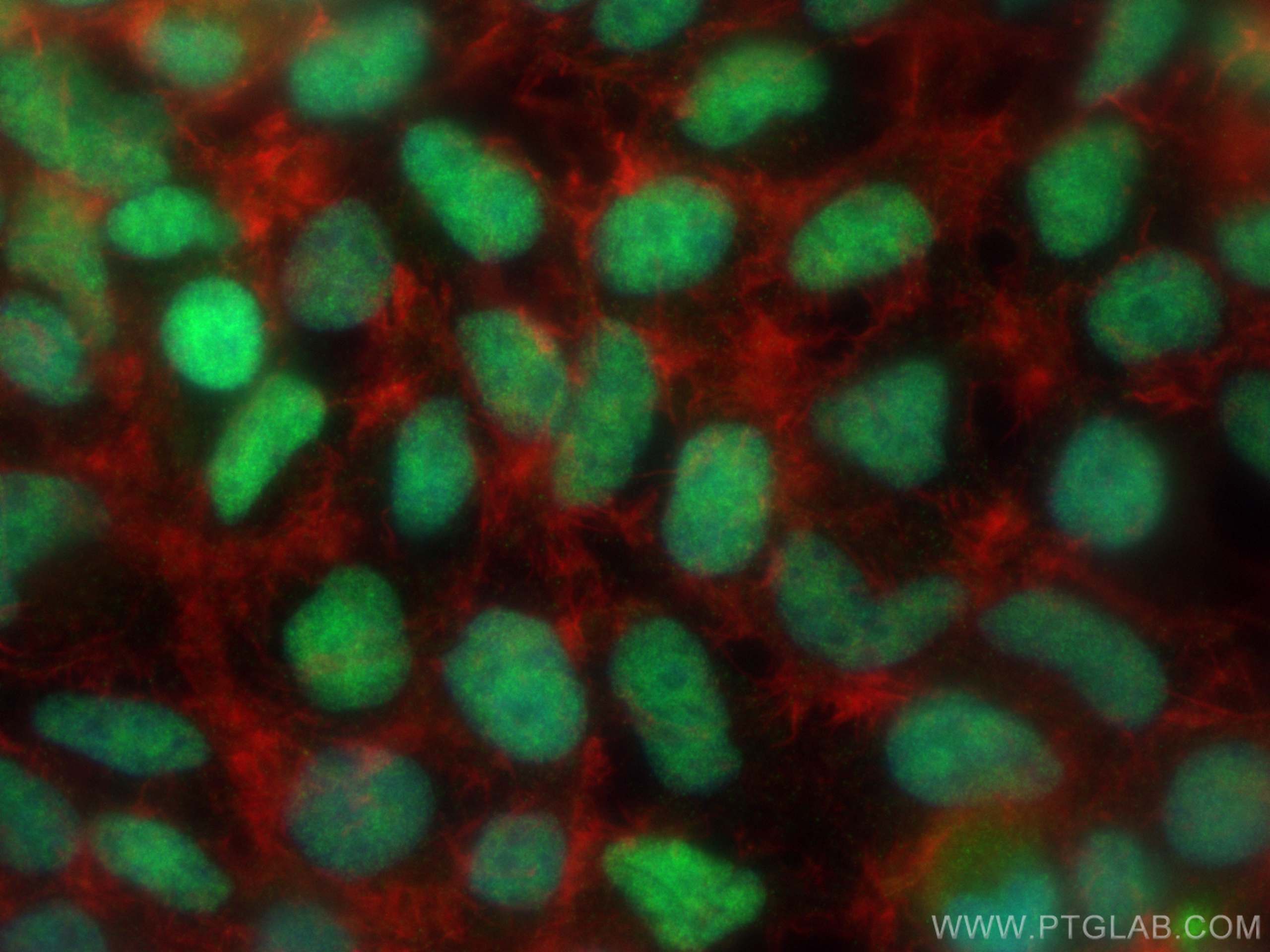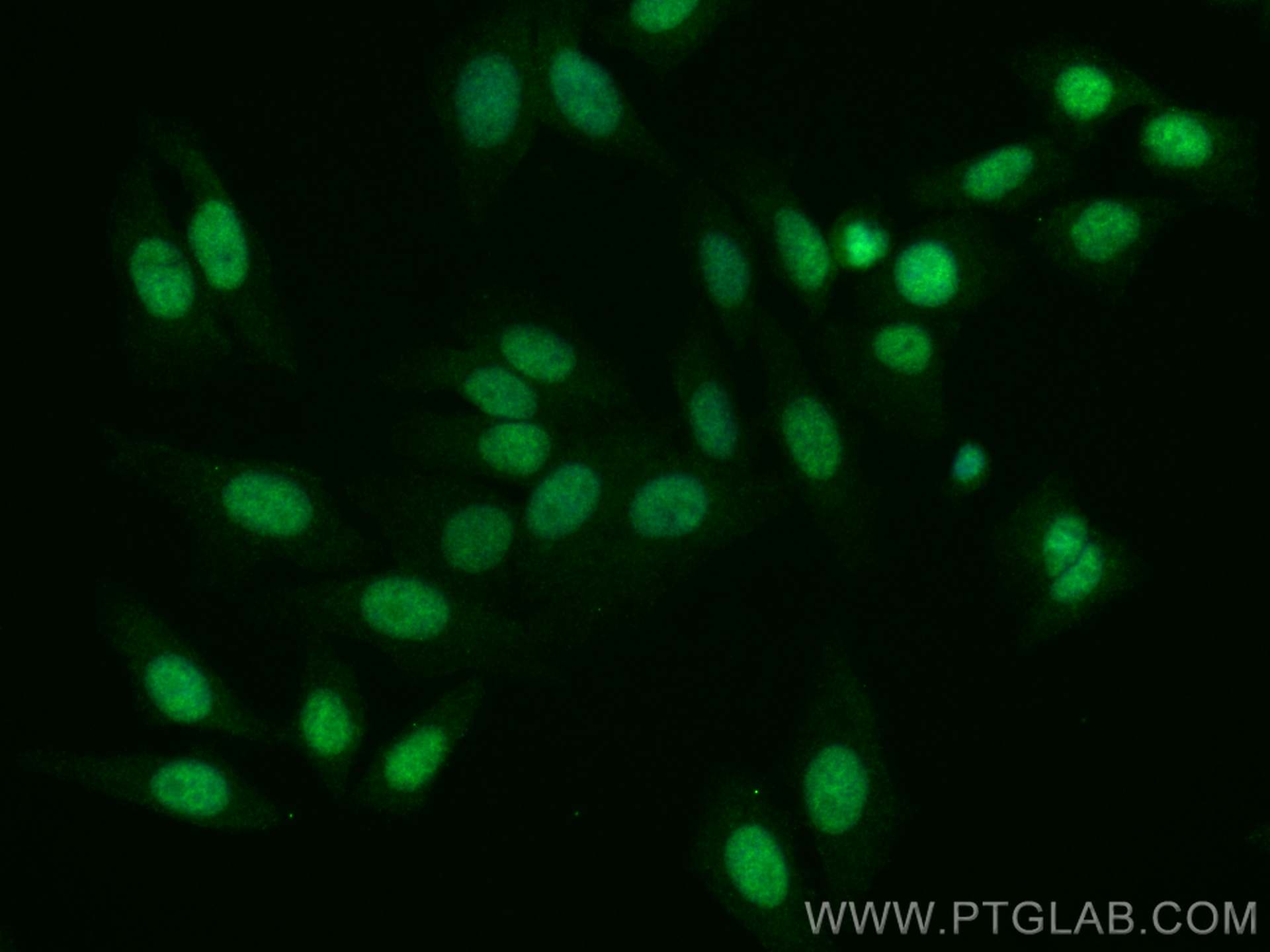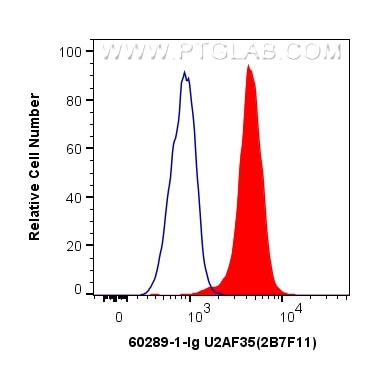Tested Applications
| Positive WB detected in | HeLa cells, COLO 320 cells, HEK-293 cells, Raji cells, Ramos cells, HSC-T6 cells |
| Positive IP detected in | HeLa cells |
| Positive IHC detected in | human breast cancer tissue, human liver cancer tissue Note: suggested antigen retrieval with TE buffer pH 9.0; (*) Alternatively, antigen retrieval may be performed with citrate buffer pH 6.0 |
| Positive IF/ICC detected in | HEK-293 cells, HepG2 cells |
| Positive FC (Intra) detected in | Ramos cells |
Recommended dilution
| Application | Dilution |
|---|---|
| Western Blot (WB) | WB : 1:1000-1:6000 |
| Immunoprecipitation (IP) | IP : 0.5-4.0 ug for 1.0-3.0 mg of total protein lysate |
| Immunohistochemistry (IHC) | IHC : 1:500-1:2000 |
| Immunofluorescence (IF)/ICC | IF/ICC : 1:1000-1:4000 |
| Flow Cytometry (FC) (INTRA) | FC (INTRA) : 0.40 ug per 10^6 cells in a 100 µl suspension |
| It is recommended that this reagent should be titrated in each testing system to obtain optimal results. | |
| Sample-dependent, Check data in validation data gallery. | |
Published Applications
| WB | See 6 publications below |
Product Information
60289-1-Ig targets U2AF35 in WB, IHC, IF/ICC, FC (Intra), IP, ELISA applications and shows reactivity with human, mouse, rat samples.
| Tested Reactivity | human, mouse, rat |
| Cited Reactivity | human |
| Host / Isotype | Mouse / IgG2c |
| Class | Monoclonal |
| Type | Antibody |
| Immunogen |
CatNo: Ag0399 Product name: Recombinant human U2AF35 protein Source: e coli.-derived, PGEX-4T Tag: GST Domain: 26-240 aa of BC001923 Sequence: ACRHGDRCSRLHNKPTFSQTIALLNIYRNPQNSSQSADGLRCAVSDVEMQEHYDEFFEEVFTEMEEKYGEVEEMNVCDNLGDHLVGNVYVKFRREEDAEKAVIDLNNRWFNGQPIHAELSPVTDFREACCRQYEMGECTRGGFCNFMHLKPISRELRRELYGRRRKKHRSRSRSRERRSRSRDRGRGGGGGGGGGGGGRERDRRRSRDRERSGRF Predict reactive species |
| Full Name | U2 small nuclear RNA auxiliary factor 1 |
| Calculated Molecular Weight | 28 kDa |
| Observed Molecular Weight | 35-40 kDa |
| GenBank Accession Number | BC001923 |
| Gene Symbol | U2AF1 |
| Gene ID (NCBI) | 7307 |
| RRID | AB_2858277 |
| Conjugate | Unconjugated |
| Form | Liquid |
| Purification Method | Protein A purification |
| UNIPROT ID | Q01081 |
| Storage Buffer | PBS with 0.02% sodium azide and 50% glycerol, pH 7.3. |
| Storage Conditions | Store at -20°C. Stable for one year after shipment. Aliquoting is unnecessary for -20oC storage. 20ul sizes contain 0.1% BSA. |
Background Information
U2 auxiliary factor (U2AF), comprising a large and a small subunit, is a non-snRNP protein required for the binding of U2 snRNP to the pre-mRNA branch site. U2 (RNU2) small nuclear RNA auxiliary factor 1 (U2AF1,synonyms: RN, FP793, U2AF35, U2AFBP, RNU2AF1)is the small subunit which plays a critical role in both constitutive and enhancer-dependent RNA splicing by directly mediating interactions between the large subunit and proteins bound to the enhancers. The U2AF1 gene is localized to chromosome 21q22.3, which is the critical region for three diseases, progressive myoclonus epilepsy, autoimmune polyglandular disease type 1, and one form of bipolar affective disorder. The calculated molecular weight of U2AF35 is 28 kDa, but the modified U2AF35 protein is about 35-40 kDa.
Protocols
| Product Specific Protocols | |
|---|---|
| FC protocol for U2AF35 antibody 60289-1-Ig | Download protocol |
| IF protocol for U2AF35 antibody 60289-1-Ig | Download protocol |
| IHC protocol for U2AF35 antibody 60289-1-Ig | Download protocol |
| IP protocol for U2AF35 antibody 60289-1-Ig | Download protocol |
| WB protocol for U2AF35 antibody 60289-1-Ig | Download protocol |
| Standard Protocols | |
|---|---|
| Click here to view our Standard Protocols |
Publications
| Species | Application | Title |
|---|---|---|
Nat Commun SPF45/RBM17-dependent, but not U2AF-dependent, splicing in a distinct subset of human short introns. | ||
Mol Neurodegener Nuclear speckle specific hnRNP D-like prevents age- and AD-related cognitive decline by modulating RNA splicing. | ||
Nucleic Acids Res Stoichiometries of U2AF35, U2AF65 and U2 snRNP reveal new early spliceosome assembly pathways. | ||
Nat Commun Metabolic labeling based methylome profiling enables functional dissection of histidine methylation in C3H1 zinc fingers | ||
Reviews
The reviews below have been submitted by verified Proteintech customers who received an incentive for providing their feedback.
FH Wael (Verified Customer) (08-28-2025) | The first lane is the ladder and the rest are samples from Hek293 cells (Whole cell lysate). Major band appears between 37 and 25 KD markers (closer to the 37D), as expected.
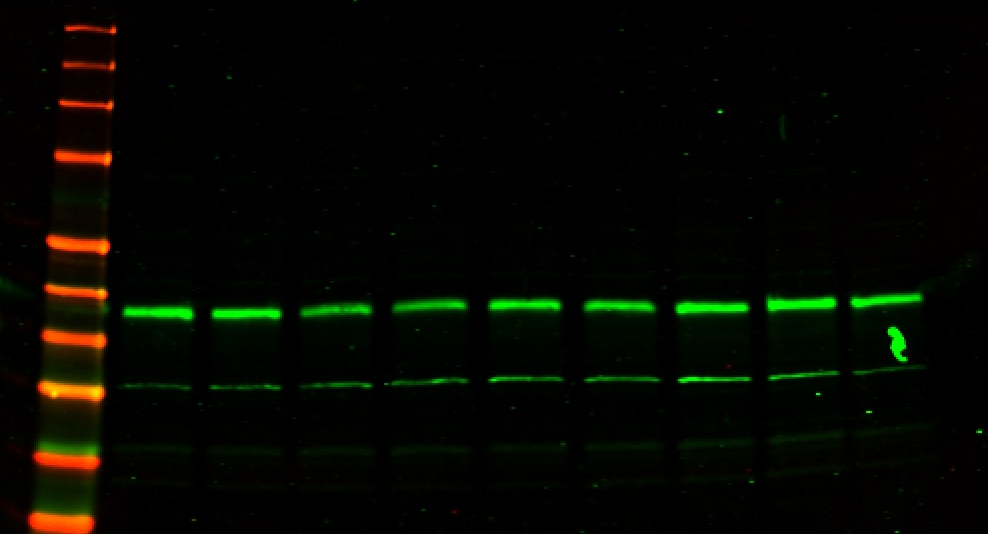 |

